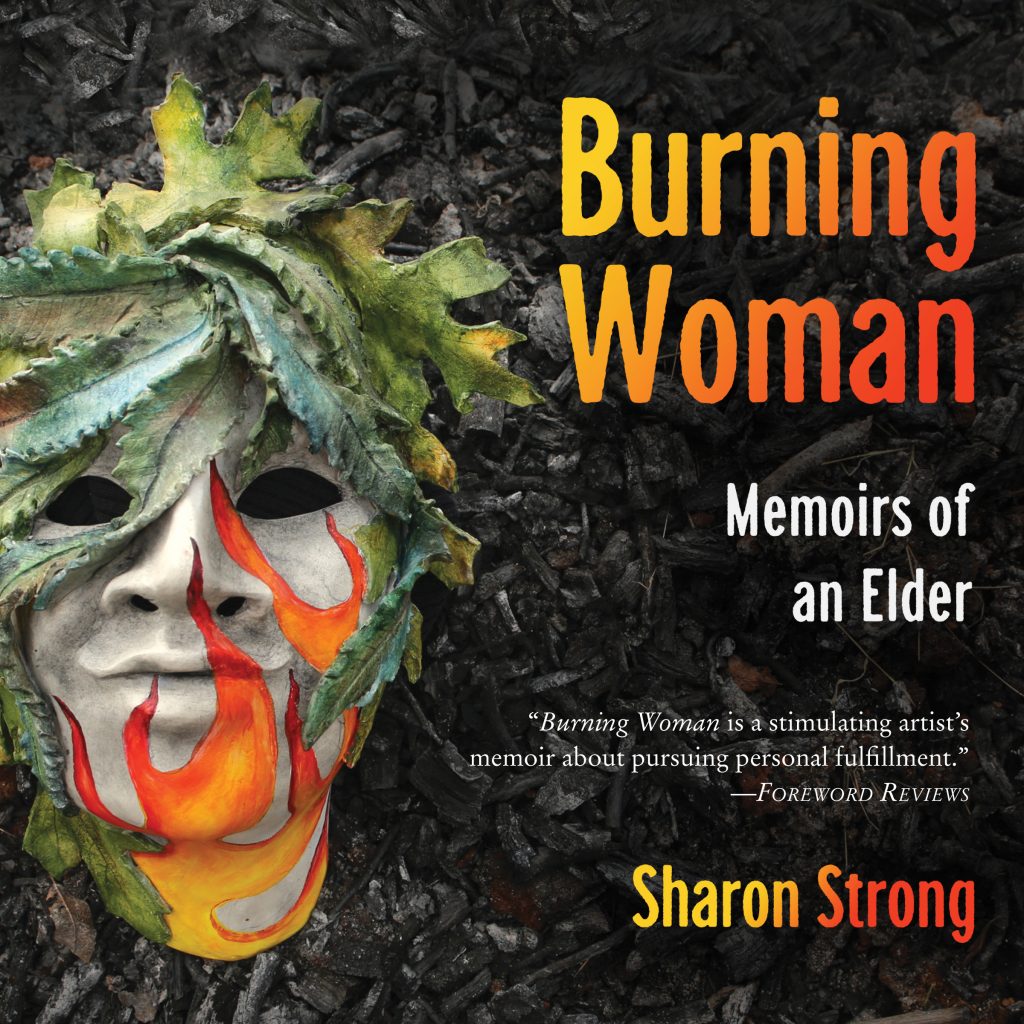 About a year ago I suggested to Sharon that she might want to record an audio version of her book Burning Woman, Memoirs of an Elder. I think my wife has a lovely, dulcet, low voice and that she would narrate her own book beautifully. I would be her producer, director, and sound engineer.
About a year ago I suggested to Sharon that she might want to record an audio version of her book Burning Woman, Memoirs of an Elder. I think my wife has a lovely, dulcet, low voice and that she would narrate her own book beautifully. I would be her producer, director, and sound engineer.
Neither of us knew what we were getting into. Sharon’s work is deeply personal and I worried that she would either over-emote in her reading or completely pull back from the subtext and speak in what I call her “professional psychologist’s voice” which is soothing but without strong affect. Of course I could direct her performance, but how would it feel to have her husband dictate how to speak her story? What seemed like a good idea at the start, was suddenly terribly fraught.
We started off working just a few hours a week. The recording sessions were exhausting. Typically, the way a narrator and director work together is that the narrator reads until a word is slurred or mis-pronounced or the director says “cut” when a passage is to too fast or too slow, too even or too ragged. Then the final five seconds of the good recording is played back as the narrator listens. Then synchronizing with the end of the recorded words she “punches in” continuing the narrative just as the editing system switches into live, record mode. This is efficient because editing is done on the fly.
We tried this, but it was hard for Sharon to match the rhythm, loudness, and tenor of her performance across a break in the middle of a sentence or paragraph. If you’re not a pro, used to doing this, it’s really hard. As a result we often recorded and kept more than one take of a sentence or paragraph. Then I would listen, select the good takes, and edit them together. This was slow, painstaking work and we often got quite exasperated with each other. We only produced about twenty minutes of usable audio in the first two months. Could we get through the whole book? Would our marriage survive this?
About four months into the process we’d gotten over the hump. We could listen to finished chapters and feel good about the work we had done. We found a way of working together. I said “cut” a lot less often as Sharon navigated through the text more deftly, finding her voice. The parts of the book that are emotionally intense went really well. In reading aloud her deepest personal experiences, Sharon re-lived them and the feelings associated with those experiences are manifest in her performance. In fact, calling it a “performance” is not accurate because she wasn’t performing anything. Only occasionally did I tell her to take it down a notch, because the listener needs space in which to experience their own reaction to the story.
Slightly over half-way through Burning Woman Sharon describes meeting me and our love affair which led first to a geographically bifurcated life, and then getting married. Could I be Sharon’s director and producer while listening to her speak of me as her lover and husband? You, dear listener, will be the judge of that! The experience of recording and editing the second half of Burning Woman was deeply meaningful. Sharon told our story truthfully, sometimes painfully, with compassion and grace.
I invite you to listen. Here it is, fresh out of the recording studio, on Audible. If you don’t already have an Audible account you can easily sign up for a thirty-day free trial. Your first audio book, Burning Woman, will be free.
The print version of the book will become available on June 21st on Amazon and other book sellers.
P.S. My own audio reading on Audible of The Restless Hungarian can be found here.
Cheryl
May 23, 2022 at 2:31 pmI am three hours into the book. Hearing the voice of a treasured friend/sister simply warms my heart.Tom, it seems you guided her well… Sharon, it’s wonderful and uniquely you and I am thrilled for you to have the fruits of your labor so wonderfully revealed. With pleasure I will go on to my listening!
Diana Reynolds Roome
May 20, 2022 at 12:12 pmThe recording of Sharon’s memoir must have been a unique experience – how many partners in life, love and art get to do this? Few listeners could have any idea what an intense process that was, requiring enormous skill and patience, so Tom’s description of the intricacies of this work will greatly enrich my listening. I’m so looking forward to embarking on the memoir, both in print and in Sharon’s own distinctive recorded voice. Same goes for Tom’s “Restless Hungarian.”
I’m in awe of your achievements. You two are valiant warriors!